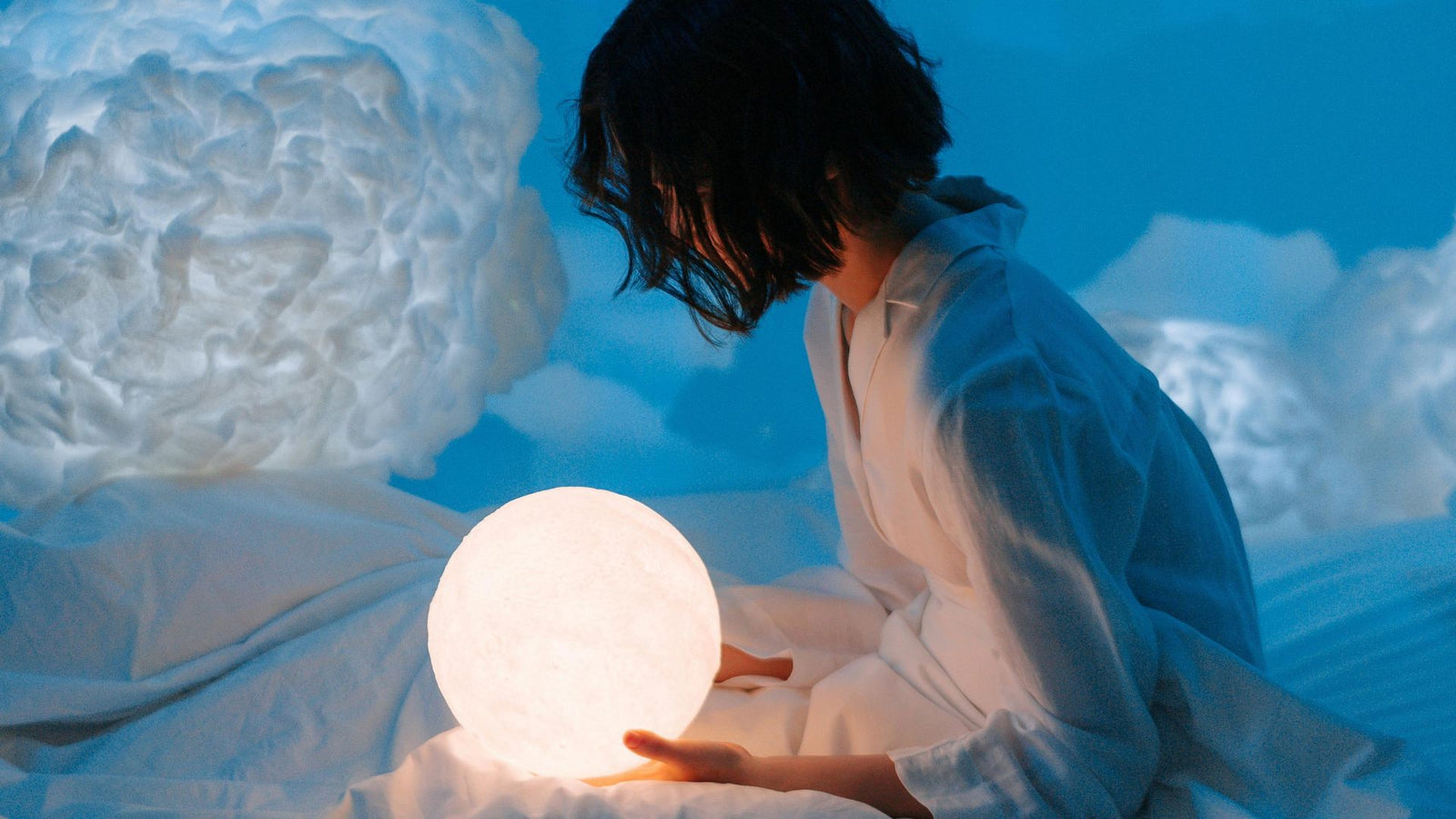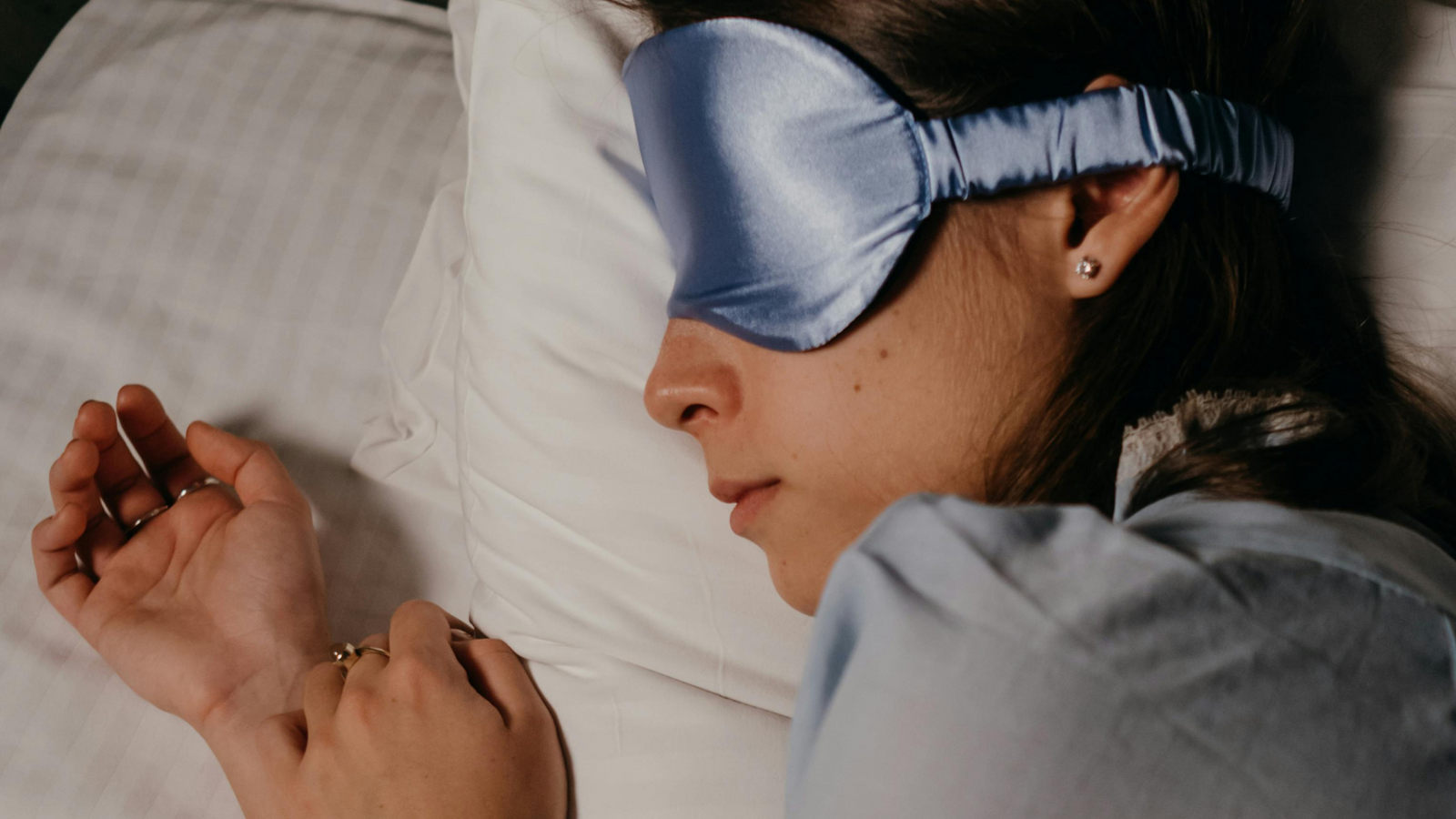Your Cart is Empty
Buy now, pay later or in 3 with Klarna
Get free shipping by subscribing to newsletter!
Fast shipping from our warehouse in the UK!
Buy now, pay later or in 3 with Klarna
Get free shipping by subscribing to newsletter!
Fast shipping from our warehouse in the UK!

The Mystery of the Moon: Does It Really Influence Our Sleep?
Sleep plays acrucial role in ourphysical and mental health, as well as our overall well-being. It is during sleep that our bodies regenerate, our brains consolidate memories, and our immune systems strengthen. However, a long-standing question persists:does the Moon influence our sleep? This idea is deeply rooted in popular culture worldwide, sparking both fascination and debate among researchers and skeptics.

In this article, we will explore:
- Popular belief and myths
- The connection between the Moon and sleep cycles
- Scientific research and studies
- Potential mechanisms
- Individual factors and variations
- Tips for improving sleep
- Conclusion
- Popular belief and myths
For centuries, the Moon has captivated the human imagination, oftenassociated with mysterious beliefs and superstitions. Numerous sayings and legends have emerged suggesting that lunar phases affect our sleep patterns. Some claim that the full moon disrupts sleep, while others believe that the new moon promotes peaceful sleep. These ideas have persisted through generations, sometimesinfluencing sleep-related behaviors and rituals.

- The Link Between the Moon and Sleep Cycles
Humansleep cycles are well-documented, featuringdistinct phases such as deep slow-wave sleep and rapid eye movement (REM) sleep. Concurrently, the Moon undergoesvarious phases visible from Earth, including the new moon, full moon, and quarters. Scientific studies have explored the possibility that these lunar phases may influence the quality and duration of sleep in certain individuals. Research findings vary, but they raiseintriguing questions about the potential interaction between external natural cycles and our internal sleep rhythms.

- Scientific Research and Studies
Recentresearchhas attempted to demystify the potential impact of the Moon on sleep through rigorous scientific inquiry. Studies have examined various aspects, such as thecorrelation between lunar phases and sleep disorders, as well as theinfluence of lunar brightness and other environmental variables on sleep quality.
Studyresultsare diverse and sometimescontradictory. Some research suggests a slight increase in sleep disturbances during the full moon, while others find no significant correlation. The complexity of interactions between lunar natural cycles and human circadian rhythms stillrequires further exploration to reach more definitive conclusions.
- Potential Mechanisms
Severalpotential mechanisms have been proposed to explain thepresumed influence of the Moon on sleep. This includes the direct impact oflunar lighton the secretion of melatonin, a hormone regulating the sleep-wake cycle. Additionally, thegravitational effects of the Moon on tides could indirectly influence physiological processes related to sleep in some sensitive individuals.

Thenighttime brightness of the Moon could potentiallydisrupt sleep cycles, especially for light-sensitive individuals. Moreover, while the exact relationship between tides and human sleep remains debated, studies continue toexplorehow theseenvironmental factors might interact with individualsleep cycles.
- Individual Factors and Variations
Responses to lunar cycles canvary significantly from person to person. Factors such as age, gender, pre-existing health conditions, and sleep habits play a crucial role in how each individual perceives and reacts to the lunar environment. Understanding these individual variations is essential for contextualizing study findings and informing clinical practices and public health recommendations regarding sleep.

Exploring these aspects makes it clear that while the question of lunar influence on our sleepremains complex and subject to debate, scientific studies continue to play a crucial role in understanding this potentially fascinating relationship between the cosmos and our nocturnal well-being.
- Tips for Improving Sleep
To improve sleep quality, regardless of the supposed influence of the Moon, several general tips can be particularly beneficial. Establish aregular sleep routine by going to bed and waking up at consistent times, even on weekends. Ensure yourbedroom isdark,quiet, and at acomfortable temperature to promote deep sleep.Limit exposure to bright screens such as phones and tablets before bedtime, as blue light can disrupt melatonin production, an essential hormone for regulating sleep.Exercise regularly but avoid vigorous activities just before bedtime. Finally,practice relaxationtechniques such as meditation or deep breathing to reduce stress and promote relaxation before sleep.
To promote better sleep based on scientific evidence, consider approaches fromcognitive and behavioral therapies that can help identify andcorrect behaviors and thoughts contributing to sleep disorders. Natural supplements like melatonin may be helpful in regulating the sleep-wake cycle, although their use should be discussed with a healthcare professional. If sleep problems persist despite these adjustments, it is advisable to consult a specialist to evaluate any underlying conditions requiring medical treatment.

- Conclusion
This exploration of the potential link between the Moon and our sleep highlights afascinating debate between popular beliefs and scientific research. While evidence of a direct impact of the Moon on sleep remainsmixed, it is undeniable that this question continues to pique interest and research. Recognizing how popular beliefs influence our perception of sleep and how scientific education can enlighten our decisions regarding nocturnal well-being is crucial.
To deepen our understanding of the potential link between the Moon and sleep,future research should explore longitudinal studies examining the cumulative effects of lunar phases on sleep. Multi-level approaches integrating biological, environmental, and behavioral data will be essentialfor understanding the underlying mechanisms. Moreover, raising awareness among the public and healthcare professionals about the science behind sleep and its impact on overall health is crucial for promoting informed and healthy sleep practices.
Interested in learning more about sleep curiosities? Visit our website at www.medcline.co.uk to explore more blogs on this topic!



